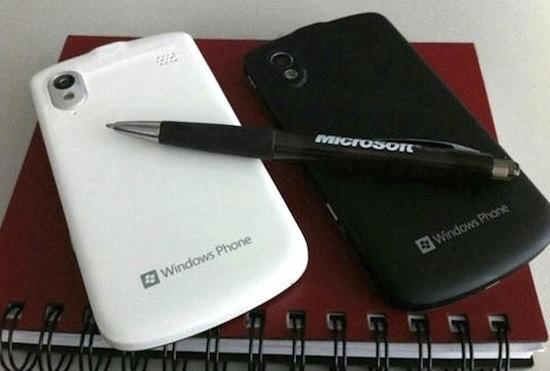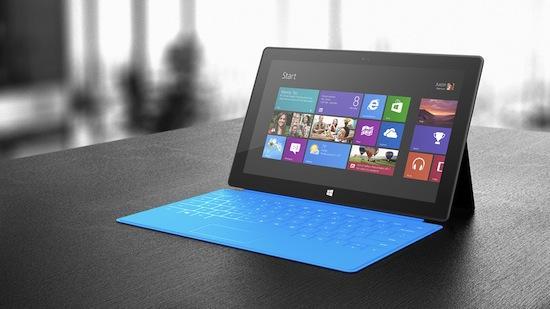
There is no limit to display size on Android smartphones as evidenced by the Asus Fonepad at a gargantuan 7-inch phablet form factor. Comparatively, there is no differentiation between iOS on the iPhone or on the iPad. So, why has Windows complicated the gadget market with multiple versions of the Windows experience on different form factors?
Microsoft has consistently marketed Windows Phone as a way to get things done quickly without having to deal with pesky issues like UI lag, widgets, or apps (joke) because of insanely simple system requirements. A 1GHz dual-core CPU, 512MB RAM, and 4GB flash memory will get you up and running with a Windows Phone smartphone, and the experience is largely the same no matter the hardware because of these simple requirements. Though the experience has yet to fully match the big dogs in mobile (lack of Bluetooth 4.0, a notification center, task manager, etc.), Microsoft has a good thing going by keeping it so very simple on their mobile devices.
On the other hand, Microsoft has yet to find a hardware partner ready to blow up Windows Phone onto a screen larger than 5-inches due to an inherent resolution limitation. But seeing that large screens are here to stay, I wouldn't put it by Microsoft to enter the phablet market and be a viable contender - they just can't wait around to enter the arena.
If you can take Reddit seriously, 2013 could the year we see some phablets with Microsoft's mobile operating systems. The HTC Tiara, Samsung Cronus LTE, and Huawei Ascend WQ 5 might be bringing some phablet-Windows Phone 8-goodness to town this year according to a thread posted just yesterday.
Part of the reason why a Microsoft-powered phablet entices me is in what they've done with Windows RT. I've spent a good bit of time with a Microsoft Surface RT tablet, and I don't find the experience much to write home about on this form factor. Windows RT is not a formidable opponent to traditional laptops running full versions of desktop operating systems. But I'd buy a phablet with Windows RT on it for the same reasons I'd use a Windows Phone 8 phablet. I feel it makes more sense than what Windows RT was positioned against and stands a chance as a productivity device against current phablets on the market.

We're watching Samsung run away with the Galaxy Note "productivity" tagline like Android and TouchWiz were designed to be useful on the phablet form factor. While Android has options like Polaris Office and a ton of photo editing apps, the idea that these experiences are better suited for a large smartphone is not justified - it's just coincidence.
There's a couple reasons for this. Android and iOS are largely dominant in the mobile arena making it seem like they've defined what people want based on a certain set of daily functions which each OS does very well. But I still have trouble finding a set of productivity applications that rival desktop programs, and Windows RT and Windows Phone 8 do not have this problem.
My friend Anna Scantlin recently pointed out that less people are buying desktop computers. Whether or not that is a trend of smartphones and tablets gobbling up the consumers who are jumping ship has yet to be determined - it's simply too early to tell, but it's not too early to speculate what Microsoft could do if it mended the productivity suite which has defined Windows on the desktop.
Likewise, you're not going to kid me if you said your Microsoft Surface RT tablet was a viable laptop replacement. Yes, there are ways to get the full Windows 8 programs up and running on your Surface, but the experience of RT is genuinely limited by ARM chips…which are commonplace in mobile. This leads me to believe Windows RT is better suited for smartphones.
In the past, Microsoft's endeavor into mobile has been rocky at best. Windows Mobile and Windows Phone versions 6.5 and below largely took the desktop experience, shrunk it down, subtracted the home screen, and added a dial pad. Yet Windows Phone 8 (or Windows RT) on a larger screen, say 5-inches on up, could easily be mistaken for a more productive device. Add in a stylus, a few quick notifications to enable note-taking abilities, and you've got yourself a phablet that also has a suite of Office applications.
Now that sounds like a phablet I'd buy.
What do you think about a phablet running Windows Phone 8, or Windows RT? Was Windows RT on a tablet a case of being in the wrong place at the wrong time, or just the wrong place? Hit the comments and tell me your thoughts of a Windows Phone/Windows RT phablet!